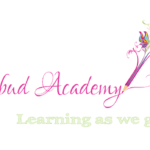There’s no secret that between creative nonfiction and memoir-writing, the market is cocked and loaded. The only question is which way the barrel is turned. Are you about to shoot off into your dreams or shoot yourself in the foot?
What I Want
The root of the word memoir is memory. When you pitch or query a memoir, I already know that it’s nonfiction. You don’t need to prove your facts as being true. The best memoirs to me are the ones that convince me not of the truth, but make me question the reality. I want to be left with a feeling of, “Wow. You really can’t make this stuff up.”
What I want is for you to be creative and resourceful enough to put time and thought into recounting a memory into a memoir. I want to have to flip quickly back to your query and make sure what I’m reading is nonfiction. The only way that will happen is if you write your memoir in such a way as to have developed characters, plot, scene, dialogue, and just over-all good storytelling.
What I Most Often See
Journaling is common place. Just go to your local bookstore or Wal-Mart and check out the section for journals. You can buy some that are gorgeously leather-bound with ribbons and lace embellishments, or you can choose from countless whimsical paper designs. Journaling is fun and can be self-healing, but it (usually) has one market—you. On top of that, journaling is linear: This happened, then this happened, then this happened, then this happened . . . so forth and so on.
I don’t want a linear reporting of your life–even if it’s framed between the present and the past.
I know this seems confusing. In real life, things happen in a linear sequence. When you write fiction, you create a world. When you write nonfiction, you may not have to create the world, but you do need to recreate it for your reader.
The only other way I can think to further describe this little hiccup between what I want and what I most often see is third person reporting of a first person account. I know you lived it, but I don’t want you to tell me about it—I want to experience it through your writing.
How to Reconcile the Two
So, now comes the big question: How can you make your nonfiction read like fiction? As I alluded to before, it comes down to storytelling. Or perhaps “story-telling” should be a word of the past. What I really want is story-showing. I know we’re all pretty tired of hearing, “Show, don’t tell,” but there’s truth in that statement, and those of us in nonfiction are all about truth, so use that knowledge to your advantage.
You have another advantage over all of your fiction writing counterparts. They have to make up their characters, you don’t. The only problem is that they can exaggerate a characteristic to epic proportions if it fits their story, and you—oh wait. Yes, you can, as long as you do it right.
You may not be able to exaggerate in the normal sense of the word, but you can strengthen and help elucidate a characteristic by being choosey about what parts of your memory you decide to include. Yes, it’s your memory, and a memory is stagnate, in that it really happened, and there’s no way to change it into something that didn’t happen without crossing the line over into fiction. However, you can choose the angle and perspective of your memory to illicit a specific feeling or overall moral.
Answer two questions about your memoir: (1) Why should someone care that you have this memory and (2) Who should care that that you have this memory? That’s your memoir’s market. That’s what takes your self-healing journal into the realms of a sellable memoir.
Pitch This Way
Finally then, we’ve come back to the whole point of this blog post. Now that you know what I want to find in your memoir, you can help mold your pitch accordingly.
If you put “NF” at the end of your pitch, I already know it’s nonfiction. Add “memoir,” and I’ll even know it’s a memoir. So, don’t put “a true accounting,” “when I was,” “a tale of my own experience,” etc. in your pitch. That takes up too many of your limited character count, and I’ve already ascertained all of that from “NF memoir.”
Instead, craft your pitch towards the story you’re telling. I know it’s your memory, but I want to know there’s a solid theme and market behind your memoir. What gap in the memoir market are you filling?
Want bonus points? Understand that people read fiction to “end up in a different time, place, and situation” (Huff Post). My ultimate goal is to find a memoir written so well that it, as a nonfiction book, appeals to the fiction market. Would your memoir appeal to a fiction genre, as well? Imagine if Sherlock Holmes was a real guy. Would his story appeal any less to the mystery market? That’s creative nonfiction has the potential to do. That’s strong story-telling.
Pitch me the story, not the fact that it’s a memoir. Pitch me a memory, not a journal. Pitch me nonfiction so well thought out that I feel like I’m reading fiction.
I hold no illusions that this is something easily achieved, but this is what I want you to aim for.
![]()
![]() Some rights reserved by the ragged edge
Some rights reserved by the ragged edge







 Jessica Schmeidler is a professional editor, ghostwriter, literary agent, and homeschooling mompreneur. While still in college, she began working from home, starting her own business soon thereafter. In 2015 she founded Golden Wheat Literary.
If she's not inside reading, writing, or editing, she's outside with her daughter, riding her horses, annoying the chickens, or playing in the garden.
Jessica Schmeidler is a professional editor, ghostwriter, literary agent, and homeschooling mompreneur. While still in college, she began working from home, starting her own business soon thereafter. In 2015 she founded Golden Wheat Literary.
If she's not inside reading, writing, or editing, she's outside with her daughter, riding her horses, annoying the chickens, or playing in the garden. 





Hi Jessica,
It’s my understanding that memoir is indeed very challenging to write and even harder to sell. That’s probably why I’ve decided to tell my “memoir” stories on my blog under the series name TALES FROM THE BAYOU. I’ll leave it to my readers to tell me if I’ve managed to tell a great story or not…;~)
Great post!
Take care,
Donna L Martin
This was very helpful! I am pitching tomorrow morning, so I hope I can wrap all of this with a very nice bow. Thank you for sharing!
Lisa
I hope it helped! I’m so sorry for just now noticing this.